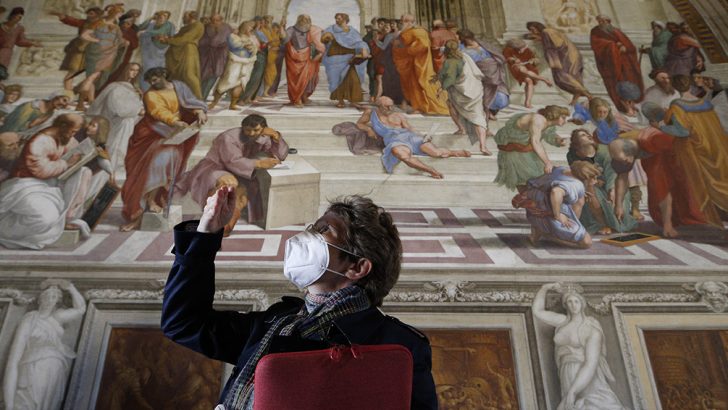The World Health Organisation has been issuing advice to women: do not drink any alcohol during your childbearing years. Because most women, from adolescence to menopause, are likely to become mothers, and boozing mothers can produce infants with the distressing Foetal Alcohol Syndrome.
I wonder if I had been given such advice, when I was a youngster, would I have taken it?
Wait a minute: I was given very similar advice! Indeed, I was enjoined to take the pledge against alcoholic drinks from the time of my confirmation, which was then at the age of ten, until the age of 21.
Did I heed this advice? No, my reflex was to rebel against it. The moment I tasted champagne, at a wedding party aged 17, all thoughts of alcohol abstinence fled. To heck with the killjoys!
And that was broadly reaction which the WHO received for its scolding tone in its Global Alcohol Action Plan 2022-2030. How dare they lecture women! How dare they suppose that women are just walking baby-incubators! How dare they discriminate against women – what about male drinking?
Yet I wonder if I had been given more plain facts and information, rather than forbidding warnings, if I might have responded more rationally?
There was a tradition of considering it more shameful for a woman to be drunk than for a man and I dismissed this as anti-female prejudice – surely, what’s sauce for the goose is sauce for the gander!
But if I had been told that, biologically, women have smaller and more vulnerable livers – male livers can recover from alcohol damage, female livers are less likely to – would I have been convinced?
If some boffin had explained that few women can drink any man under the table – because the average male capacity to hold drink is simply much greater – would I have believed the science?
Or that the traditions stigmatising intoxication in women were linked with a fear of females ‘being taken advantage of’ – that is to say, sexually assaulted or even raped when insensible?
And the famous Hogarth cartoon of a drunken mother in London’s notorious Gin Lane causing an infant to topple from her arms was often used by temperance campaigners as admonition against mothers’ ruin.
The WHO went about its mission of warning women against alcohol in the wrong way. It took an overly bossy tone, and seemed to equate a moderate glass of wine with the extremes of alcohol abuse. It should have stuck to stating the medical facts about the biological (and psychological) impact of alcohol abuse for women.
I had to learn the hard way about the perils of alcohol: but if the facts had been explained more fully, rather than delivered in a forbidding way, inviting rebellion, maybe I might have learned the lessons sooner.
Revelling in Raphael
Last week, the Central Catholic Library in Dublin hosted a terrific Zoom talk by Fr Michael Collins about the painter Raphael – the 500th anniversary of his death was last year – with wonderful illustrations of the artist’s paintings, papal portraits, church frescos and even woven tapestries. Zoom can light and illuminate paintings so vividly.
The priest-author brought to life the ambience of the High Renaissance, when popes like Sixtus IV, Julius II, Leo X (a son of Lorenzo de Medici) and the Borgia Pope Alessandro VI were amazing patrons of the arts. Some did, alas, practice nepotism – the Franciscan Sixtus made six of his nephews cardinals – yet it was a fascinating world, full of drama and culture.
Raffaello Sanzio, known as Raphael, was born in Urbino in 1483, and orphaned at a young age: his father had also been a painter and Raphael began his apprenticeship early. His work showed astonishing skill in the use of oils – an innovation at the time – and an exceptional aesthetic lucidity. His portrait of Christopher Colombus is a stunning study in character as well as artistic composition. Raphael died at the early age of 37, greatly mourned.
Fr Michael Collins is the author of “Raphael’s World”, available from Messenger Publications, and the talk can be accessed by contacting: library@catholiclibrary.ie
***
Robert Schuman, now a ‘venerable’ seems to be on the road to sainthood. The ‘father of Europe’ certainly was a good man, dedicated to peace and reconciliation, and personally pious. In fact, three of the four main figures who effectively launched the seeds of the European Union in 1950 were committed Catholics: Mr Schuman (from the Alsace-Lorraine region), the Italian Alcide de Gaspari, and the German Konrad Adenauer. The fourth, Jean Monnet was a French secularist.
Sainthood usually takes time, but it’s no harm for the EU to be reminded of its Christian and Catholic heritage!


 Mary Kenny
Mary Kenny A tourist looks at one of the Raphael rooms during the re-opening of the Vatican Museums after weeks of closure last month. Photo: CNS
A tourist looks at one of the Raphael rooms during the re-opening of the Vatican Museums after weeks of closure last month. Photo: CNS 